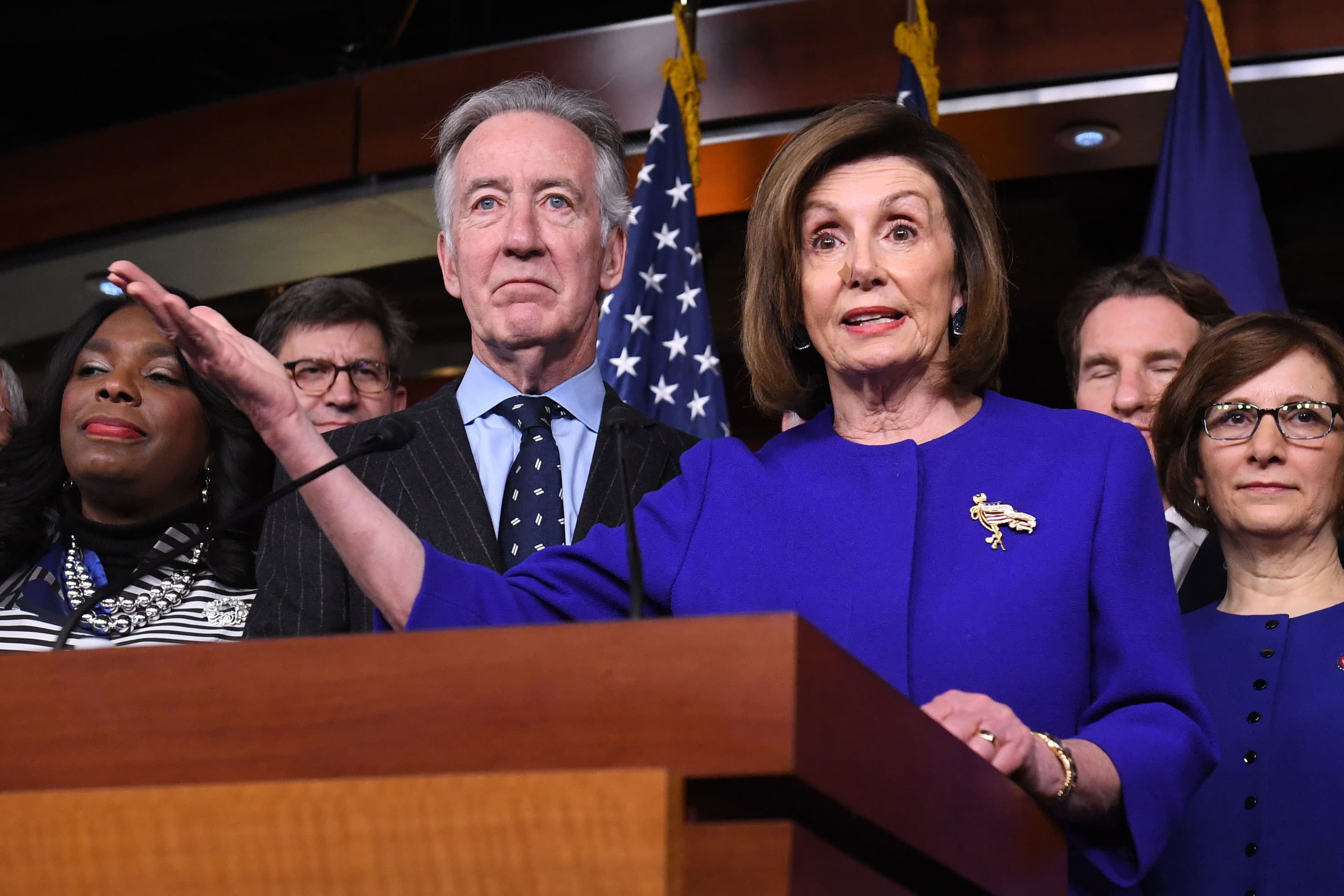
Speaker of the House Nancy Pelosi and House Ways and Means Committee Chairman Richard Neal (L), Democrat of Massachusetts, speaks about the US – Mexico – Canada Agreement, known as the USMCA, on Capitol Hill in Washington, DC, December 10, 2019.
Saul Loeb | AFP | Getty Images
House Democrats on Monday outlined a bevy of tax hikes on corporations and wealthy people to fund an investment in the social safety net and climate policy that could reach $3.5 trillion
The plan calls for top corporate and individual tax rates of 26.5% and 39.6%, respectively, according to a summary released by the tax-writing Ways and Means Committee. The proposal includes a 3% surcharge on individual income above $5 million and a capital gains tax of 25%.
It’s unclear how much the tax increases would raise and if the new revenue would offset the full investment in social programs. Democrats could ultimately cut the legislation’s price tag as centrists balk at a $3.5 trillion total.
The tax proposals may change before Democrats craft the final bill they hope to pass in coming weeks. The Ways and Means Committee will debate tax policy when it resumes its markup of the mammoth spending package this week.
Senate Democrats will also have their say in the tax proposals. Sen. Joe Manchin, D-W.V., has called for a corporate rate of 25%, lower than the one favored by House Democrats. He has also expressed concerns about the plan adding to budget deficits.
The party will need votes from every member of the Senate Democratic caucus and all but three House Democrats. Senate Majority Leader Chuck Schumer, D-N.Y., and House Speaker Nancy Pelosi, D-Calif., aim to pass the legislation through the budget reconciliation process without Republican support.
The House tax plan would not go as far as President Joe Biden initially hoped. The president had called for a 28% corporate tax and a 39.6% capital gains rate.
Biden has promised not to raise taxes on anyone who make less than $400,000 per year.
The House proposal would take huge steps to reverse the 2017 Republican tax cuts. It would hike the corporate rate to 26.5%, after the GOP slashed it to 21% from 35%.
Democrats would also restore the top individual rate to 39.6% after Republicans cut it to 37%.
The GOP has opposed the Democratic plan in part because of proposed changes to the 2017 law. Republicans also would not reverse any of the cuts as part of the Senate-passed bipartisan infrastructure bill.
Under the House Democratic plan, the top corporate rate would apply to income above $5 million. The first $400,000 in income would be taxed at an 18% rate.
A 21% rate would apply to corporate income between $400,000 and $5 million.
The plan would invest nearly $79 billion in IRS tax enforcement to increase revenue raised.
It would hike taxes on certain tobacco products. The proposal would also change or scale back certain deductions for high-income individuals and corporations to raise money.
Democrats plan to use the new revenue to fund expansions of child care, paid leave, pre-K education, community college, public health insurance plans, household tax credits and green energy incentives, among other investments.




